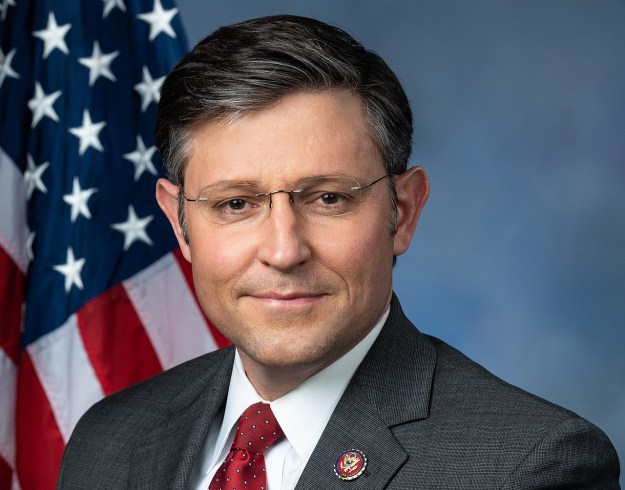
By Paul V. DeMarco
Guest Columnist
My experience with injustice has, fortunately, never been personal. I’m a white, married, straight man who attends a Protestant church, so no one has ever denied me a seat at any table because of who I was. I was born in New York, but when I was 7 years old, my family moved to Charleston, where I entered second grade. It didn’t take me long to understand that not everyone was accepted as readily or treated as well as I was. Racism was easy for even a child to spot. When I was taken shopping at Belk, I saw a cross-section of the community that was missing in my neighborhood, school, and church.
I’m not sure when I first became aware of anti-Semitism. I would guess I learned about it in middle school when we studied the Holocaust. I had the advantage of attending a private school during the 1970s that had a substantial population of Jewish students. I was impressed by the discipline of some of my Jewish friends, who after a full day of regular school then attended Hebrew school. One Orthodox classmate once showed up late for an extracurricular meeting on a Saturday morning. “Sorry, I’m late,” he said sheepishly, “But I had to walk.” (Orthodox Jews are not permitted to drive or ride in cars on the Sabbath). I do remember occasionally hearing my classmates make comments disparaging Jews, but these were few and far between. I think it’s fair to say that my Jewish friends felt safe and respected at our school, although not necessarily celebrated. I graduated from high school feeling that Jews my age would have essentially the same opportunities I had.
In December of 1982, during my second year in college, that belief was challenged. I attended a debutante ball at a South Carolina country club with the woman who would eventually become my wife. I didn’t know most of the other guests, so I made many introductions. When curious partygoers asked from whence I came, I proudly told them “Brooklyn.” Some of the members of the club left our conversations worried that this loud kid from Brooklyn with the big nose and olive skin might be Jewish (I’m actually Sicilian). Jews, of course, were prohibited from being members.
The next day, my future mother-in-law told me that questions about my origin had gotten back to her. She had assured all those worried that a Jew might have polluted the WASP-y ballroom atmosphere that, no, I wasn’t Jewish. However, since then, I generally respond to the question “Where are you from?” (which in the South means “Where were you born?”) with a dodge. I tell people I was raised in Charleston, which is better received from those who might harbor misgivings about Yankees or Jews.
Jews (and, of course, blacks) were not welcome at many Southern private clubs until recently. For example, Forest Lake Country Club in Columbia, which was founded in 1923 and counts Governor Henry McMaster as one of its members, did not admit its first black member until 2017.
I’ve been revisiting my debutante experience as anti-Semitism has resurfaced around the war in Gaza. My naïve sense prior to October 7th was that the anti-Semitism that I encountered in 1982 had gradually atrophied to the point where it would continue to decline and die. But sadly, anti-Semitism seems impervious – it’s like the fungal spores that can lie dormant in the earth for years only to spring to life as a carpet of mushrooms in favorable conditions.
My one night as a Jew has helped me form my current opinion of the conflict in Gaza. First, Israel must continue to exist. Second, Palestinians must also have their own state and the right of self-determination.
I fully support the rights of those who protest peacefully in support of the Palestinians and against the war which is killing so many civilians. Before the war there was already growing opposition to the Netanyahu government. Netanyahu’s provocative policies such as settlement expansion, the killing of Palestinian demonstrators, and restrictions on Palestinian trade and freedom of movement were staunchly opposed by many in Israel and the United States.
But what hasn’t come across in any protests I have seen is any sense of shame or regret for Hamas’ brutality on October 7th, not to mention years of suicide bombings, indiscriminate rocket fire, or their grotesque tactic of using their own people as human shields.
Despite our hope for peace and justice for the Palestinians, most Americans rightly find it impossible to be sympathetic toward Hamas. The attack on October 7th will surely be one of the most evil acts of my lifetime. The barbarity of invading homes, of meticulously killing entire families, and of raping and mutilating the victims, is some of the most base behavior of which humans are capable. No one should cheer for this.
The key to many successful protest movements is their ability to find and elevate principled, sacrificial leaders. The Bible provides examples in Moses and Jesus. More recent examples include Frederick Douglass, Susan B. Anthony, Mahatma Gandhi, Martin Luther King, Jr., and Nelson Mandela. Neither Netanyahu nor the Hamas leader, Yahya Sinwar, fit this mold. The current conflict cannot be resolved until both the Palestinians and the Israelis elect new and better leaders. That is a rallying cry that would unite campus protesters from both sides and point toward a solution.
A version of this column appeared in the May 16th, 2024, edition of the Post and Courier-Pee Dee.




























